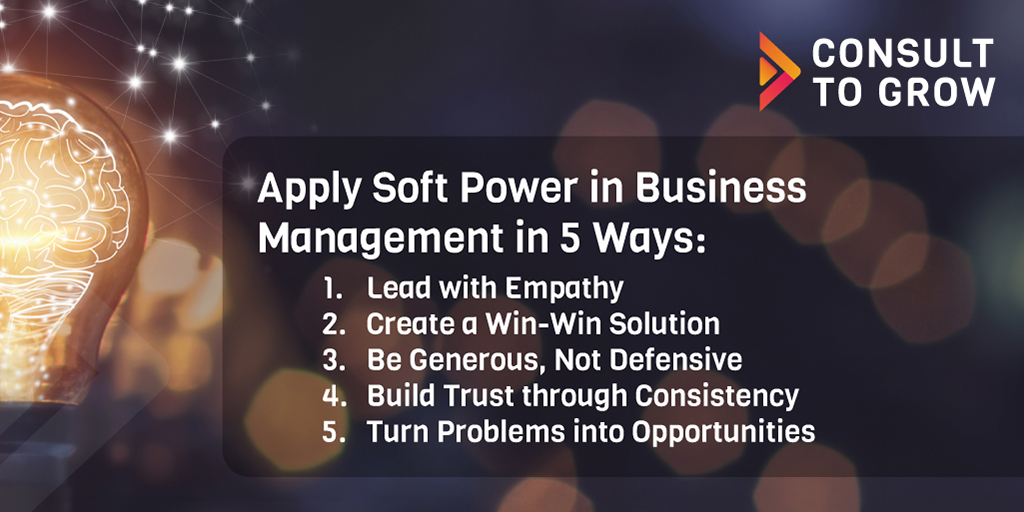
How to Lead and Succeed with Owning Multiple Locations
Owning multiple locations is often the most exciting milestone for a restaurant or retail owner, but it also comes with unique challenges. This post is

In leadership, we often think of power as authority, control, or decisiveness. But in many situations—especially difficult ones—soft power can be a more effective tool for solving problems, building relationships, and creating goodwill. Soft power involves influence through empathy, persuasion, and collaboration rather than relying on force or rigid rules.
Recently, I was inspired by Ina Garten’s biography, Ina Garten: Be Ready When the Luck Happens, to reflect on how soft power plays out in business. One story, in particular, stood out: her unique return policy at The Barefoot Contessa, which offers a masterclass in using soft power to turn challenging situations into opportunities.
Ina Garten developed a simple but incredibly effective customer return policy at her specialty food store. This approach transformed difficult situations into opportunities to exceed expectations and build loyalty. Here’s how it worked:
As Ina herself said, “People were stunned.” Instead of leaving upset, customers walked out feeling cared for, with an even stronger connection to the business.
This approach is a perfect example of soft power in a retail or restaurant environment. By listening to customers, addressing their concerns, and giving them something better than they expected, Ina resolved the issue and turned potential dissatisfaction into delight. The same principles can be applied to leadership and management.
As a manager, you can take inspiration from Ina Garten’s return policy to handle difficult situations with your team or customers. Here’s how you can apply soft power in your leadership:

Using soft power in management doesn’t mean avoiding tough decisions or letting people walk over you. Instead, it’s about engaging with people on a human level, listening to their needs, and solving problems to strengthen relationships. Ina Garten’s return policy is a reminder that sometimes, the gentler, more empathetic approach can resolve the issue and create loyal, lifelong customers and team members.
If you’re navigating a tricky situation or having a difficult conversation, remember Ina’s method: start with empathy, offer a win-win solution, and look for ways to turn the problem into something positive.
Soft power can be transformative in business, especially in customer-facing industries like restaurants and retail. Just as Ina Garten used her return policy to turn customer dissatisfaction into loyalty, you can use soft power principles as a manager to tackle difficult situations.
Leading with empathy, offering more than expected, and turning challenges into opportunities will foster stronger relationships, drive positive outcomes, and build a more resilient and connected team or business.
Consult to Grow® provides various tools and services to help you develop people strategies to grow your team. We can expertly assess your HR infrastructure, develop custom Employer of Choice strategies, facilitate leadership meetings and retreats, help you design bonus and incentive programs, and design managing partner programs. Ready to get started?

Owning multiple locations is often the most exciting milestone for a restaurant or retail owner, but it also comes with unique challenges. This post is

Is the weight of leadership or ownership pressing down on you? Do you wake up each day drained, overwhelmed, and uninspired? Maybe you are struggling

“The Ultimate Hourly Hiring Playbook” is designed for the dynamic demands of the service industry. This comprehensive guide is your essential resource for refining your